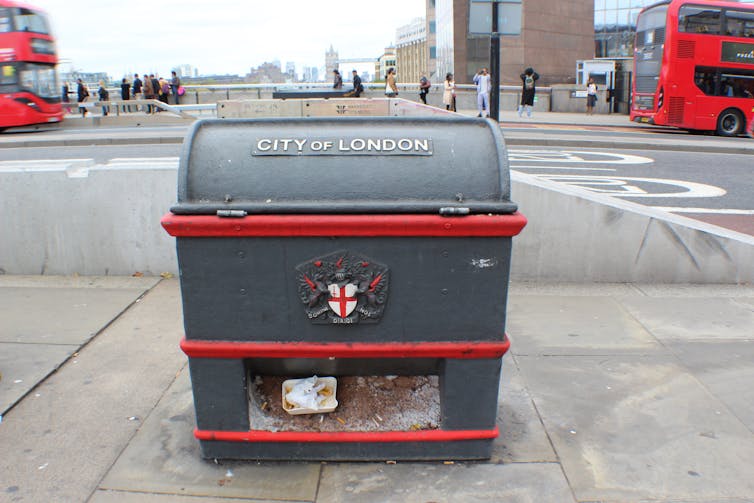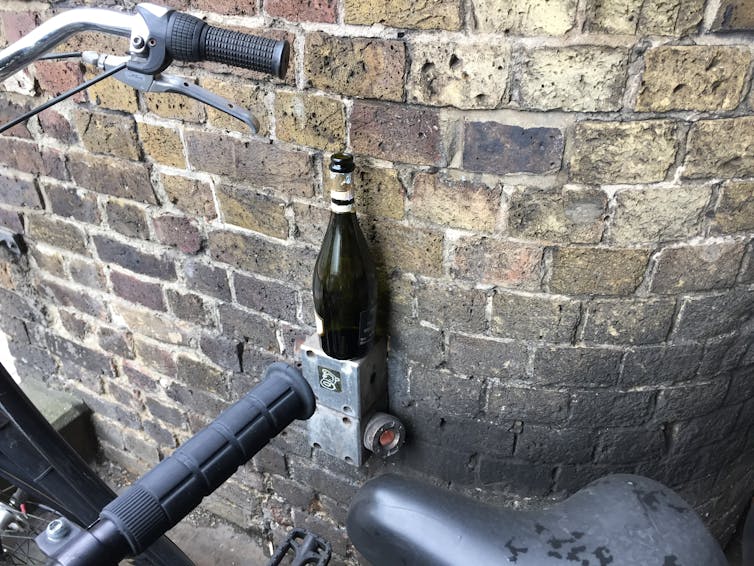Ever since I moved to London nearly a decade ago, I’ve always been fascinated by the drink cans, sandwich packets and free newspapers that are plastered over every nook and cranny of this beautiful city.
I’ve coined the phrase “polite litterers” to refer to litter that is left in this way without people even realizing they’re littering. That’s why communications that ask people not to litter when they don’t know they’re littering are simply ineffective and can discredit the efforts of people who don’t care about cleaning up our public spaces.
The act of littering has always fascinated me and I never thought it was right to throw litter on the ground. Most people in the UK agree – 95% consider a clean environment important. This may sound like a very positive outlook, but street cleaners report having to pick up 2 million litters a day, costing the British taxpayer more than £1 billion a year.
Despite the perception that littering is bad, littering rates in the UK continue to rise. Littering fines in England have recently been increased from £150 to £500, while campaign groups such as Keep Britain Tidy regularly run anti-litter communication drives and have been organizing clean-up schemes for 70 years.
This duality inspired my Ph.D. Since the 1970s, academic research has attempted to quantify the effectiveness of anti-waste techniques. But this approach misses a critical step in the scientific process—understanding exactly how waste is created before intervening.

Randa KachoffCC BY-ND
In my research, I took a step back from what experts think they know about the behavior to observe littering in action. I have spent six years watching and documenting how people dispose of their waste in London, Brighton, Manchester and Birmingham. I have discovered that not all waste is intentionally dumped.
Littering is usually defined as littering by people who openly drop litter on the ground. But if there’s no trash can to be found, some people find creative ways to dispose of their trash, leaving it on salt and sand buckets, windowsills, garden bushes, or bin bags awaiting collection.

Randa KachoffCC BY-ND
Cigarette butts – the world’s most littered item – are often thrown away as part of the smoking ritual. Furthermore, about half of the non-smoking litter I witnessed appeared to be “polite” – people placed their litter neatly on or around bins or bin-like structures rather than deliberately throwing items on the ground.
I regularly observed people looking for a bin to dispose of an empty drink can, while immediately trashing their cigarette. So while people may understand the need to avoid litter, there is a fundamental disconnect – they don’t necessarily consider cigarette butts to be litter, despite the fact that they contain toxic chemicals and plastic microfibers.

Randa KachoffCC BY-ND
Improved garbage campaigns
Polite items may be blown away by strong winds. A pile of clean garbage may collapse when someone adds another item to it. Often, this waste ends up on the ground alongside other waste, by which time the main culprit is well on its way, completely unaware that their actions have created waste in the more conventional sense.
A lot of garbage on the streets is generated completely by accident. About a fifth of the littering I observed happened while the person was completely unaware. Light, inexpensive, and small items like hair ties, face masks, and receipts are accidentally lost when people rummage through their pockets or purses.
When litter is disposed of politely, more litter can be disposed of by animals as well. Garbage bags left next to full bins ready for collection can be easily torn and scattered by foxes at night. Janitors then report that they need to pick up trash, managers read these reports and assume that trash is the problem. But when waste is created in this way, the purpose and result are severely interrupted. In fact, larger bins with more capacity and a more regular cleaning schedule will improve the situation.
Unfortunately, when litter is created unintentionally, it still has the same harmful effects on the environment and also causes other people to litter.
Many councils are increasingly removing bins to encourage people to take their rubbish home and hopefully reduce littering. This is not a reasonable expectation, especially in busy tourist areas where home may not be nearby or for people who have messy, leaky trash to dispose of while out and about. Waste disposal services should better match the needs of waste bins, especially in areas with high waste and at peak times.
Finally, the act of littering needs rebranding. Campaigns better stop assuming that trash equals trash. All forms of improper littering, including well-intentioned polite littering and random contributions, must be linked to the littering problem.
#Polite #littering #pointless #problem #UKs #approach #tackling #cleanup #isnt #working
